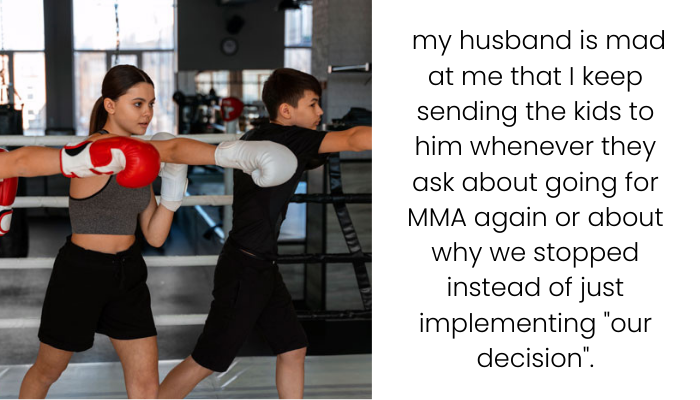Dad Makes Kids Quit MMA for a Silly Reason—Instantly Regrets It When the Complaints Start
In the aftermath of a separation, co-parenting dynamics often involve navigating disagreements regarding children’s activities. A recent situation highlights the complexities when one parent, adhering to a mutual decision to discontinue martial arts classes, directs children’s inquiries to the other parent for explanations. This approach has sparked discussions about effective communication, shared responsibilities, and prioritizing children’s well-being in co-parenting arrangements.
Parents heading for divorce can get petty, as this woman is determined to show her soon-to-be ex-husband

She and the kids had been enjoying going to MMA classes, but their dad insisted they stop because it’s “too aggressive”
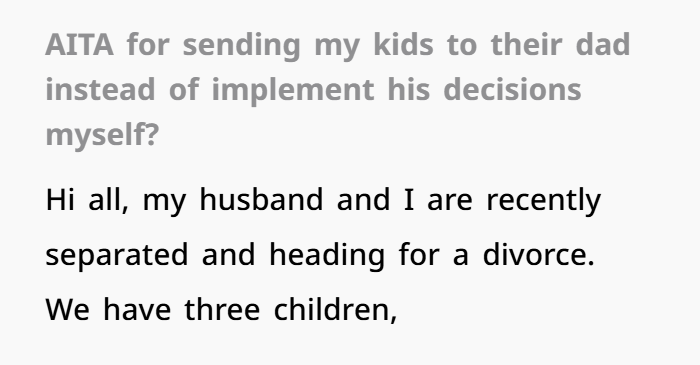
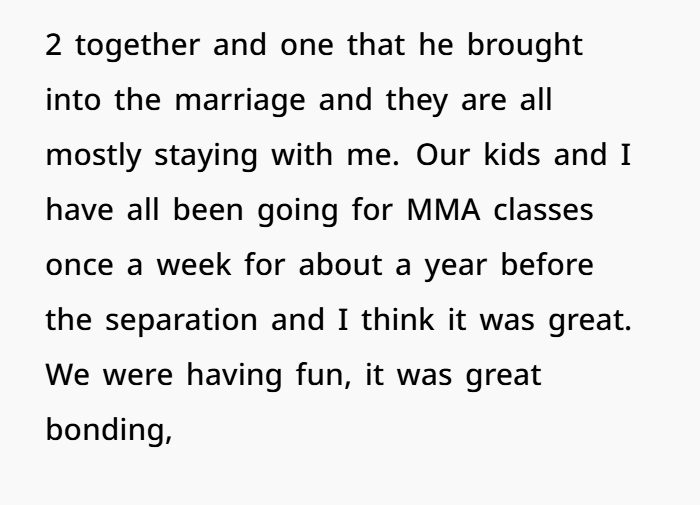
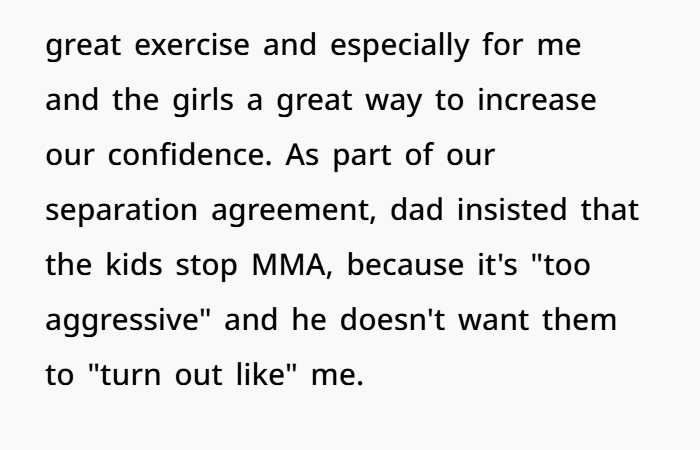

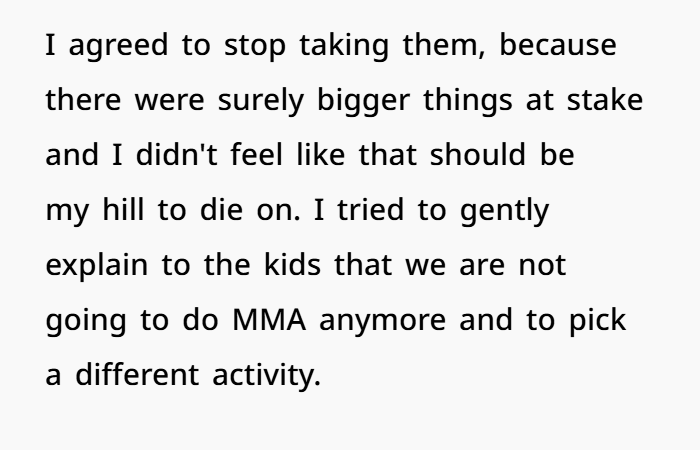
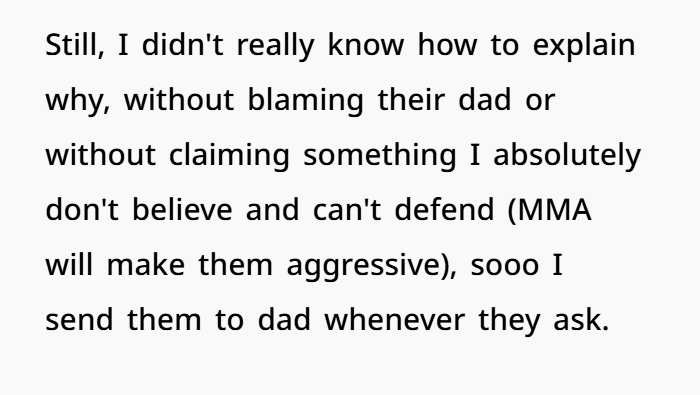
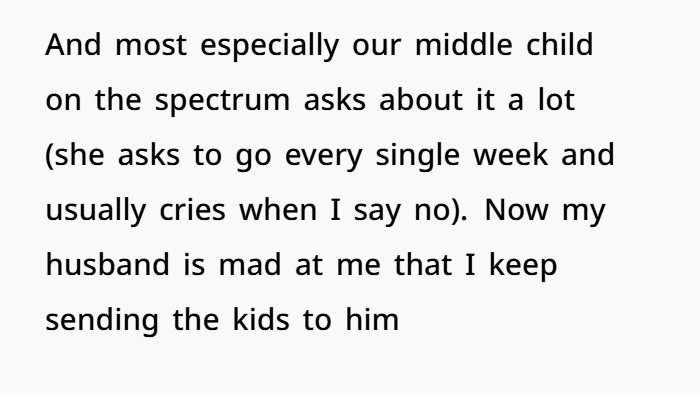
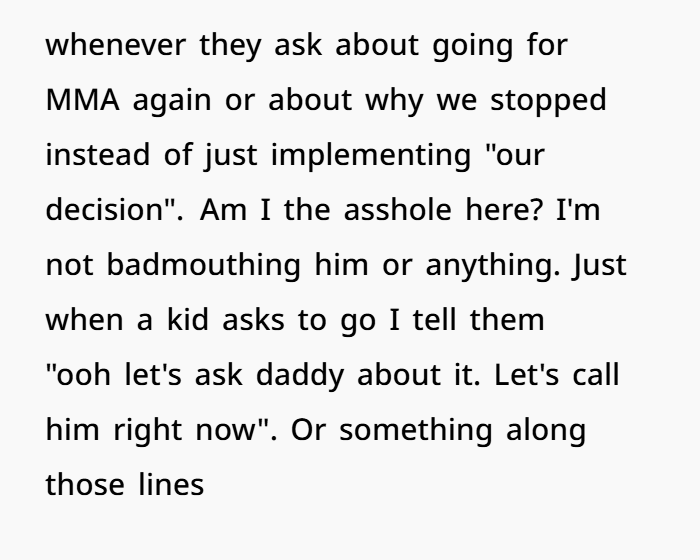
Navigating co-parenting decisions post-separation can be incredibly challenging, especially when it involves activities that were once a source of joy and bonding for your family. Your situation with the MMA classes is a prime example of the complexities that arise when parenting philosophies diverge after a separation.
Understanding the Co-Parenting Landscape
In co-parenting arrangements, especially those involving joint legal custody, both parents typically share decision-making responsibilities concerning their children’s upbringing, including extracurricular activities. This shared responsibility necessitates open communication and mutual agreement on significant decisions. However, when disagreements occur, it’s essential to prioritize the children’s best interests while striving for collaborative solutions. HelpGuide+4Avvo+4Verywell Mind+4

Addressing the MMA Class Disagreement
Your ex-husband’s decision to discontinue the MMA classes, citing concerns about aggression, contrasts with your positive experiences and the benefits you’ve observed in your children, particularly in building confidence and providing a structured outlet. This divergence in perspectives underscores the importance of discussing and documenting decisions regarding extracurricular activities in your parenting plan.
Managing Children’s Inquiries
Redirecting your children’s questions about the discontinuation of MMA classes to their father is a delicate approach. While it maintains transparency and avoids placing you in a position of defending a decision you don’t support, it’s crucial to ensure that this strategy doesn’t inadvertently cause confusion or emotional distress for your children. Children, especially those on the autism spectrum, thrive on consistency and clear explanations. Providing age-appropriate, honest, and supportive responses can help them navigate these changes more comfortably.
Moving Forward
To foster a more harmonious co-parenting relationship and support your children’s well-being:

- Open Communication: Engage in respectful and constructive discussions with your ex-husband about the importance of the MMA classes to your children and explore potential compromises or alternative activities that align with both your values.
- Professional Mediation: If direct communication proves challenging, consider involving a mediator or family therapist to facilitate discussions and help reach mutually agreeable decisions.
- Parenting Plan Revisions: Review and, if necessary, update your parenting plan to include specific provisions regarding extracurricular activities, ensuring clarity and reducing future conflicts. Pro Legal Care LLC+1Custody X Change+1
- Child-Centered Approach: Prioritize your children’s interests and emotional needs in all decisions, recognizing their attachments and the benefits they derive from certain activities.
In the comments, readers agreed that the MMA classes were important for self-defense but that perhaps they could try a less intense form of martial art

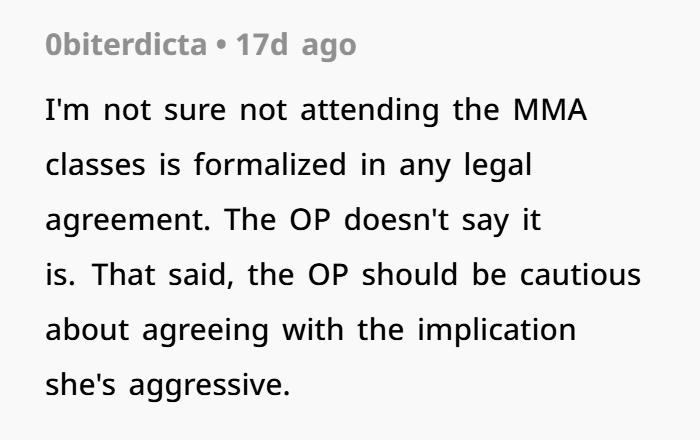
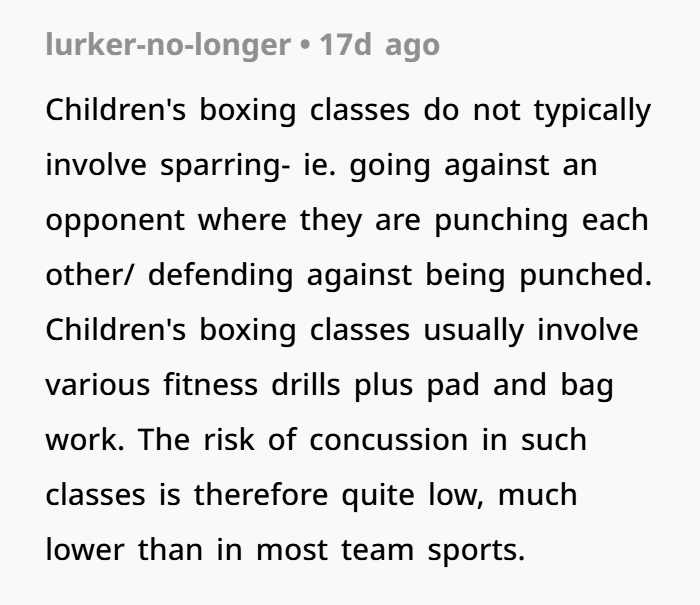
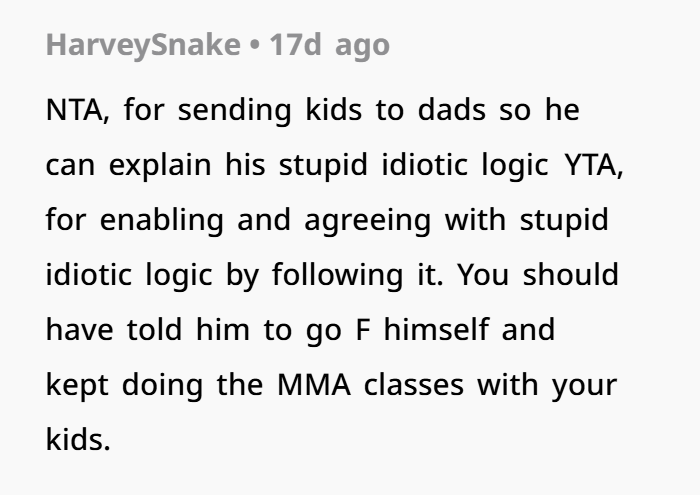

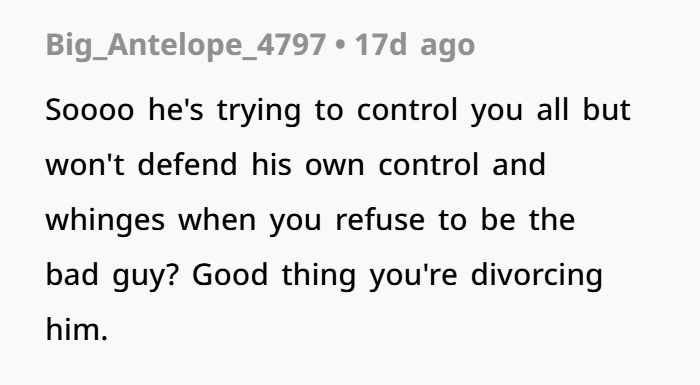

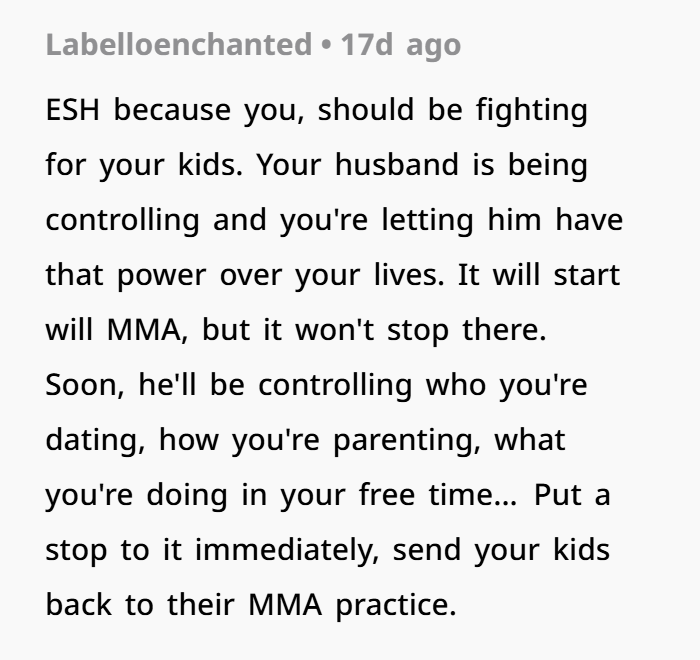
Your efforts to navigate this complex situation demonstrate a commitment to your children’s well-being and a willingness to engage in thoughtful co-parenting. By fostering open communication, seeking collaborative solutions, and focusing on your children’s best interests, you can work towards a more cohesive parenting approach that supports their growth and happiness.

